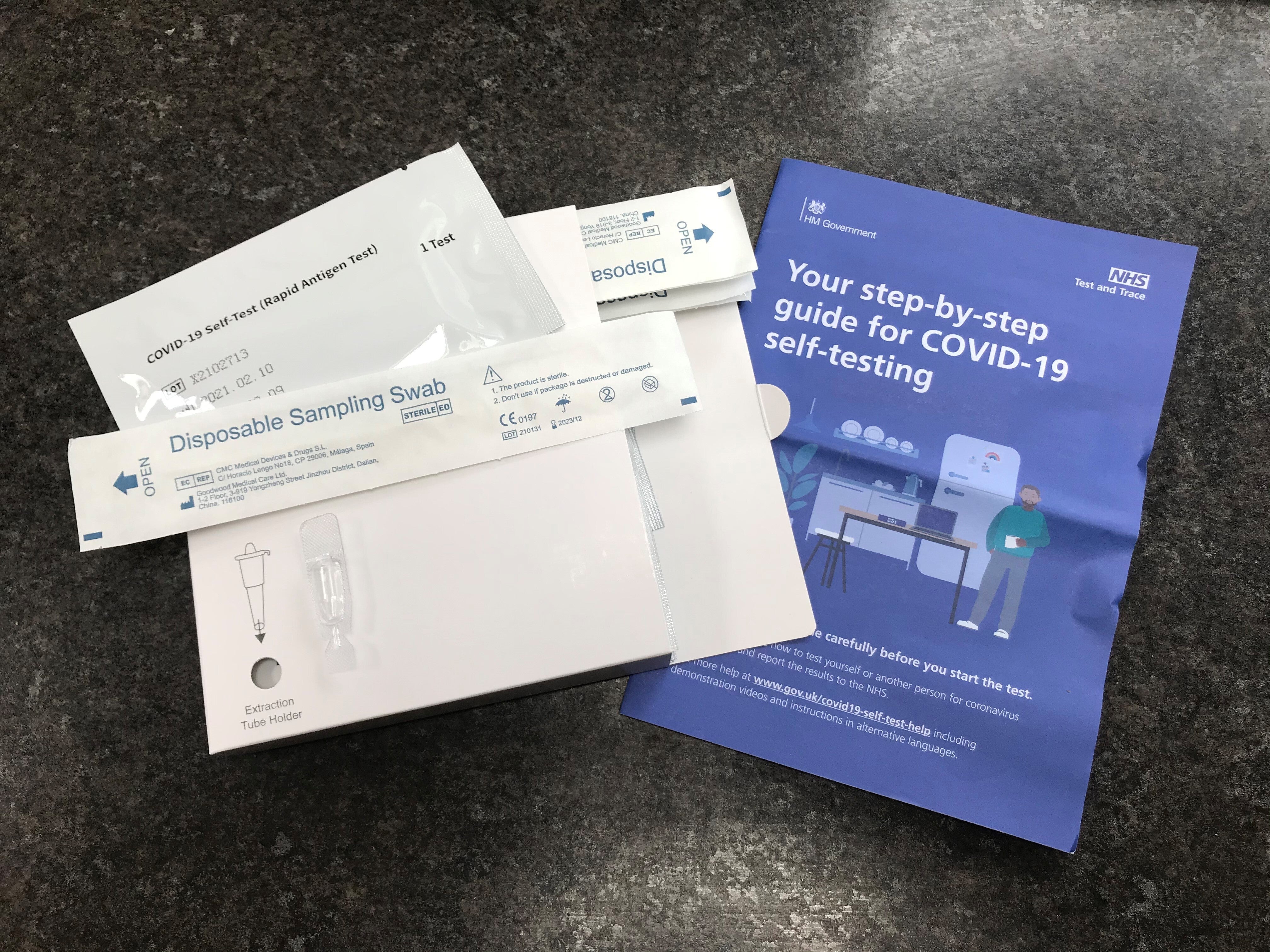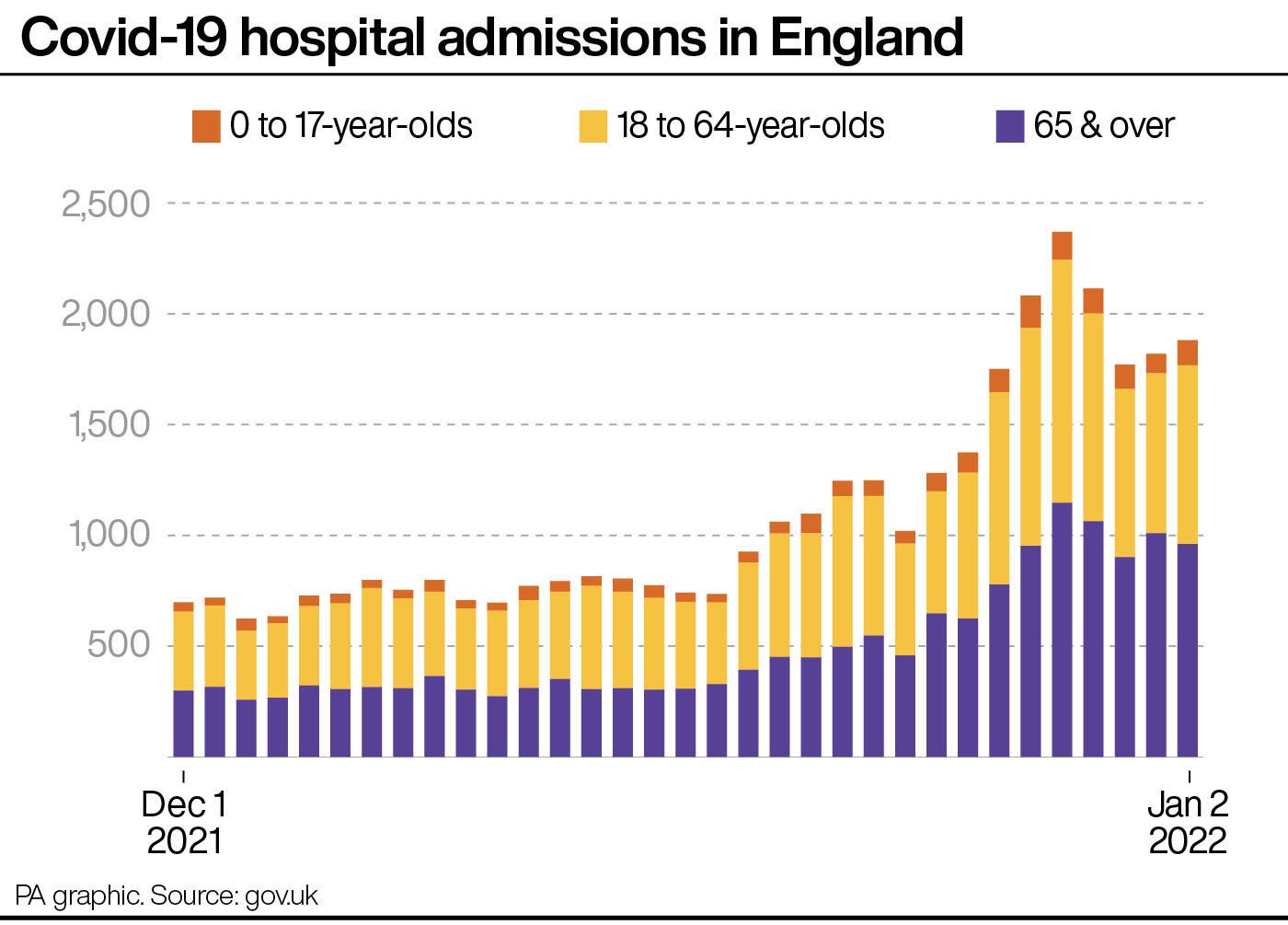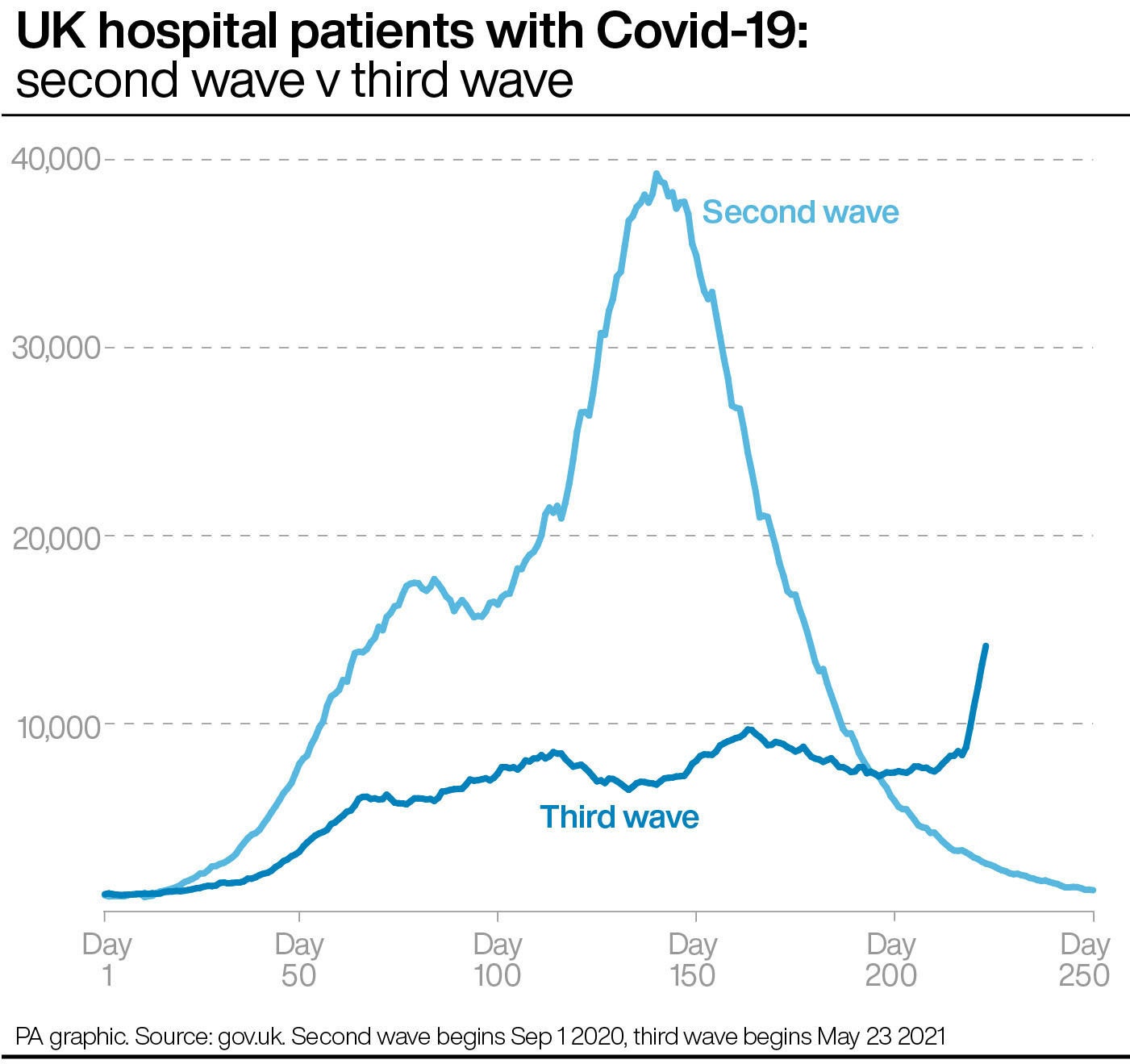Confirmatory PCR test scrapped for asymptomatic Covid cases from January 11
The UK Health Security Agency said anyone in England with a positive lateral flow test will be required to self-isolate immediately.

Your support helps us to tell the story
From reproductive rights to climate change to Big Tech, The Independent is on the ground when the story is developing. Whether it's investigating the financials of Elon Musk's pro-Trump PAC or producing our latest documentary, 'The A Word', which shines a light on the American women fighting for reproductive rights, we know how important it is to parse out the facts from the messaging.
At such a critical moment in US history, we need reporters on the ground. Your donation allows us to keep sending journalists to speak to both sides of the story.
The Independent is trusted by Americans across the entire political spectrum. And unlike many other quality news outlets, we choose not to lock Americans out of our reporting and analysis with paywalls. We believe quality journalism should be available to everyone, paid for by those who can afford it.
Your support makes all the difference.Coronavirus testing rules for people without symptoms are to be eased as Boris Johnson faces MPs to defend his plan to “ride out” the current Covid-19 wave.
The UK Health Security Agency (UKHSA) said that from 11 January, asymptomatic people in England who test positive will no longer require a confirmatory PCR test.
Meanwhile, prime minister Boris Johnson has led a Cabinet meeting where he recommended sticking with England’s plan B despite record case numbers and rising pressure on hospitals.
An estimated 3.7 million people in the UK had Covid-19 in the week ending 31 December, up from 2.3 million in the week to 23 December and the highest number since comparable figures began in autumn 2020, the Office for National Statistics (ONS) said.
In England around one in 15 people in private households had Covid-19, according ONS estimates – a level rising to one in 10 in London.

The move announced by the UKHSA will free up capacity in laboratories for PCR tests for those who have Covid-19 symptoms.
People who receive a positive result on a lateral flow device (LFD) will be required to self-isolate immediately, without requiring PCR confirmation.
The UKHSA said it is a temporary measure while Covid-19 rates remain high across the UK.
Officials said that while levels of Covid-19 are high, the “vast majority” of people with positive LFD results can be confident they have the virus.
People who have Covid-19 symptoms should still get a PCR test, the UKHSA said.

UKHSA chief executive Dr Jenny Harries said: “While cases of Covid continue to rise, this tried and tested approach means that LFDs can be used confidently to indicate Covid-19 infection without the need for PCR confirmation.
“It remains really important that anyone who experiences Covid-19 symptoms self-isolates immediately. They should also order a PCR test on gov.uk, or by phoning 119.”
A similar system will be implemented in Northern Ireland immediately and in Scotland and Wales from Thursday.
Professor John Edmunds, a member of the government’s Sage scientific advisory panel, said: “This change makes a lot of sense. When the prevalence is high – and it is incredibly high at the moment – almost everyone who tests positive with a lateral flow test will be a true positive.
“There is really no need to confirm this with a PCR, a step that not only wastes time but costs a lot of money and uses up laboratory resources that could be better used elsewhere.”
But he said there were downsides because it would give researchers “slightly less information” on the different variants in circulation because PCR swabs can undergo sequencing to determine which strain of coronavirus is present.
The new emphasis on beginning the period of self-isolation from the moment a positive LFD test is recorded rather than waiting for a confirmatory PCR, could also limit the time staff are off work – although official guidance currently in place suggests that self-isolation should already begin from the LFD result.
Kate Nicholls, from restaurant, pub and leisure trade body UKHospitality, said: “Good news that requirement to have PCR test following a positive LFT is to be scrapped – it currently lengthens self-isolation, particularly for asymptomatic cases and together with daily testing for contacts rather than isolation, should allow economy to keep moving.”
Exemptions to the new rules include people eligible for the £500 test and trace support payment, who will still require a confirmatory PCR to access the help.
PCRs will also be required for people participating in research and surveillance programmes and those at risk of becoming seriously ill, who have been identified as potentially eligible for new treatments.
The prime minister said the government would continue to give the NHS all the support it needs to further manage the pressure it is under
Ministers are also expected to approve the scrapping of pre-departure tests for travellers heading to England, with transport secretary Grant Shapps keen to help protect the beleaguered aviation industry.
The Omicron-driven surge in coronavirus cases and the knock-on effect of staff absences is already causing major problems in public services.
The Fire Brigades Union said that almost a third of London’s fire engines had been out of action during the last week, while almost 10 per cent of operational firefighters in the capital had either tested positive or were self-isolating.
A series of hospital trusts have declared critical incidents, while the North East Ambulance Service (NEAS) is still asking patients suffering from suspected strokes or heart attacks to get relatives to drive them to hospital following pressures on staff due to coronavirus and new year demand.
NEAS medical director Dr Matthew Beattie said: “Where it is safe, we will continue to ask patients to make their own way to hospital, however we would never ask anyone to drive themselves to hospital with a life-threatening illness.”
At Wednesday’s Cabinet meeting, Mr Johnson acknowledged “the next few weeks would be very challenging, particularly for the NHS where the number of people going into hospital because of Omicron will increase”.
A Downing Street statement said the Prime Minister told the Cabinet that “the UK’s balanced approach, together with new evidence that Omicron is less severe than Delta, meant it was right to maintain the plan B measures”, with a further review before they expire on January 26.
“The prime minister said the government would continue to give the NHS all the support it needs to further manage the pressure it is under,” the statement said.
Mr Johnson will face MPs in the Commons for Prime Minister’s Questions and a statement on the Covid-19 situation.
But Labour leader Sir Keir Starmer tested positive on Wednesday, meaning his place at Prime Minister’s Questions will be taken by his deputy Angela Rayner.
In Scotland, first minister Nicola Sturgeon cut the self-isolation period to seven days, as long as people have two negative lateral flow tests, broadly in line with the measures in place in England.
But restrictions on large gatherings and hospitality and leisure businesses will remain until at least 17 January in Scotland, she added.